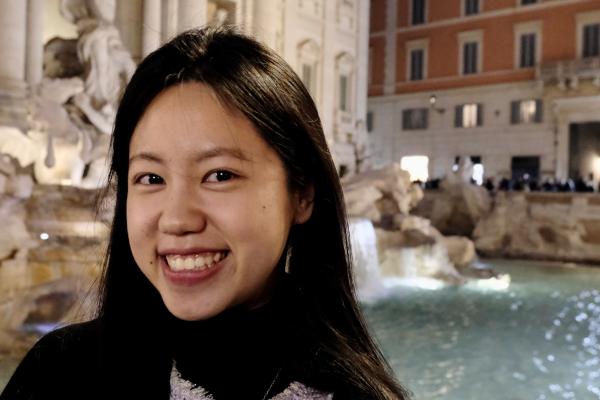Lingran Zhang receives inaugural Terry Barrett Museum Education & Administration Award

PhD student Lingran Zhang has received the inaugural Terry Barrett Museum Education & Administration Award. Established in 2024, the award was created to honor the work of Terry Barrett, PhD, and his vast contribution to the world of art museum education. The Terry Barrett Museum Education & Administration Award is designated for students who are in the Arts Administration, Education & Policy Museum Education and Administration Specialization with donations to this award funding endeavors for graduate students whose research is in museums and/or contemporary art.
Lingran earned her Bachelor's degree in Art History and International & Area Studies from Washington University in St. Louis. Lingran continued her academic journey at the University of Cambridge, where she obtained a Master of Philosophy in Heritage Studies with a distinction. Her research there was centered on the safeguarding of intangible cultural heritage.
Lingran has rich practical experience working as a research assistant and educator in museums, including the Kemper Art Museum, the Fitzwilliam Museum, and the Beijing Palace Museum. She also interned with the World Heritage Leadership program at ICCROM, assisting with course implementation related to heritage preservation and facilitating the digital transformation of ICCROM’s publications.
The Terry Barrett Museum Education & Administration Award will contribute to Lingran's dissertation research titled, Bridging Educational Divides: Empowering Rural Education Through Online Museum Resources. This research explores how museums can contribute to rural education in China, addressing the urban-rural divide in access to cultural and educational resources. The study investigates the integration of online museum resources into art education for rural elementary students, examining their impact and identifying strategies for museums to better serve underserved communities. Through action research, the project involves rural students, teachers, museum professionals, and non-profit organizations, aiming to bridge educational inequities. The study seeks to develop practical guidelines for museums to create inclusive digital tools and a sustainable model for collaborations between cultural institutions, non-profit institutions, and rural schools. Ultimately, the project highlights the potential of museums to act as socially responsive institutions, promoting educational equity and cultural accessibility for rural communities.
